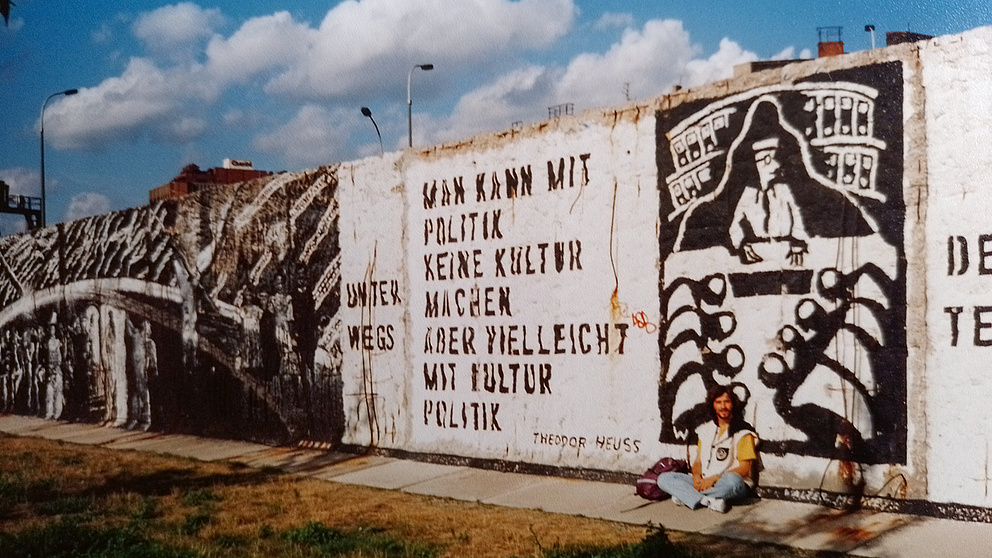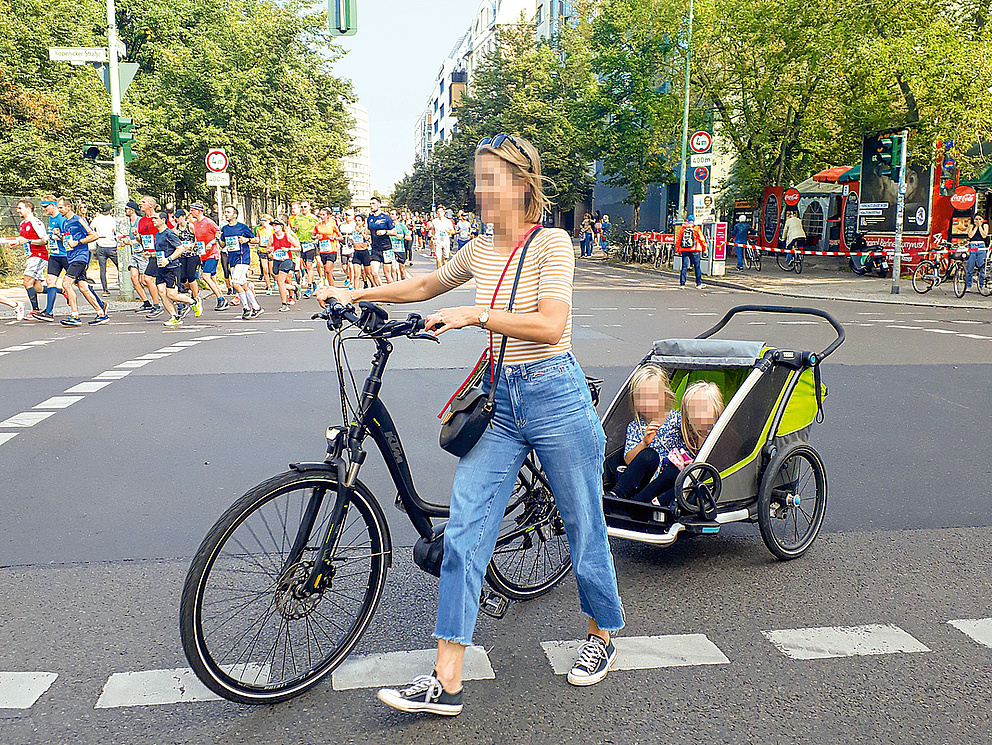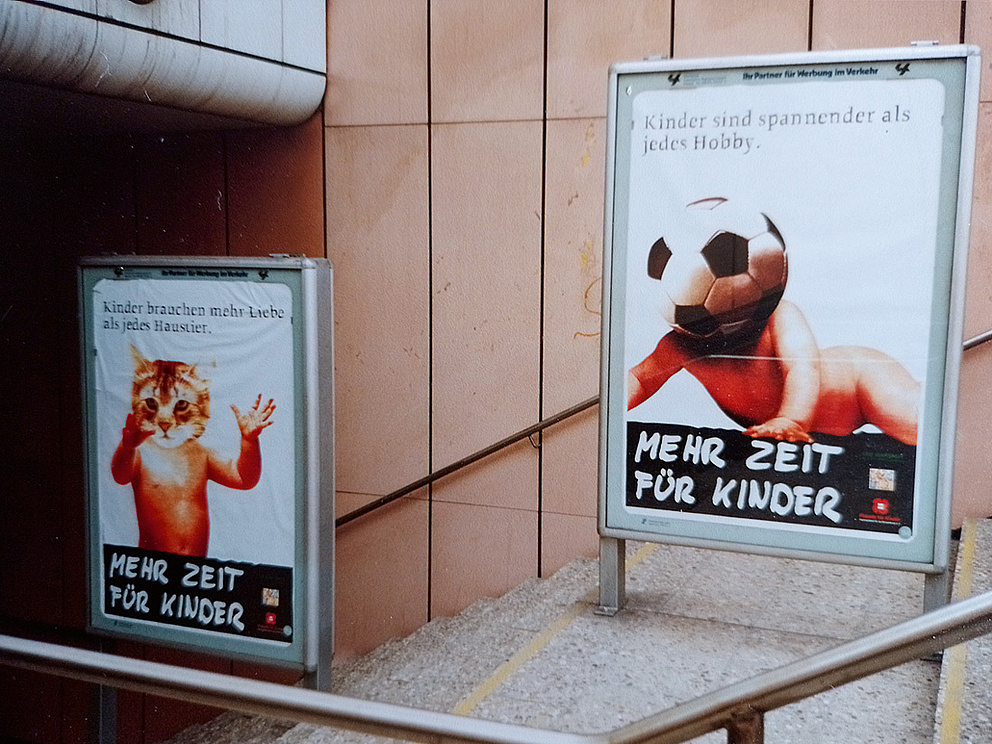Jump to the content
- {{#headlines}}
- {{title}} {{/headlines}}

Alejandro Fainstein
Professor Dr Alejandro Fainstein is a professor at the Instituto Balseiro, Universidad Nacional de Cuyo. He conducts research for the Atomic Energy Commission as well as for the Scientific Research Council of Argentina in Bariloche, Argentina. In 1993/94, he was a Humboldt Research Fellow at the Max Planck Institute for Solid State Research in Stuttgart. In 2021, he returned to Germany, sponsored by the Foundation, to conduct research at the Paul-Drude-Institut für Festkörperelektronik in Berlin.
From: Alejandro Fainstein
To: Alexander von Humboldt Foundation
Subject: Regards from Argentina!
Hi everyone,
After three months spent conducting research in Berlin, my wife, our 14-year-old daughter and I returned home taking many pleasant experiences with us. Before getting back to our routine, I wanted to send my regards and thank you for supporting us once again. My scientific stay was excellent, but not only that; it was an experience that again opened our minds and interests in many other respects.
An even more captivating, open, welcoming, diverse and culturally rich country
In the more than 25 years since our first visit, as a recently married postdoc in Stuttgart, I feel that Germany has evolved positively to become an even more captivating, open, welcoming, diverse and culturally rich country that is also democratically and scientifically very strong. I feel it is noteworthy that Germany has changed so much (I guess, of course, in part it is also my own view and perception that has changed in the last 25 years).
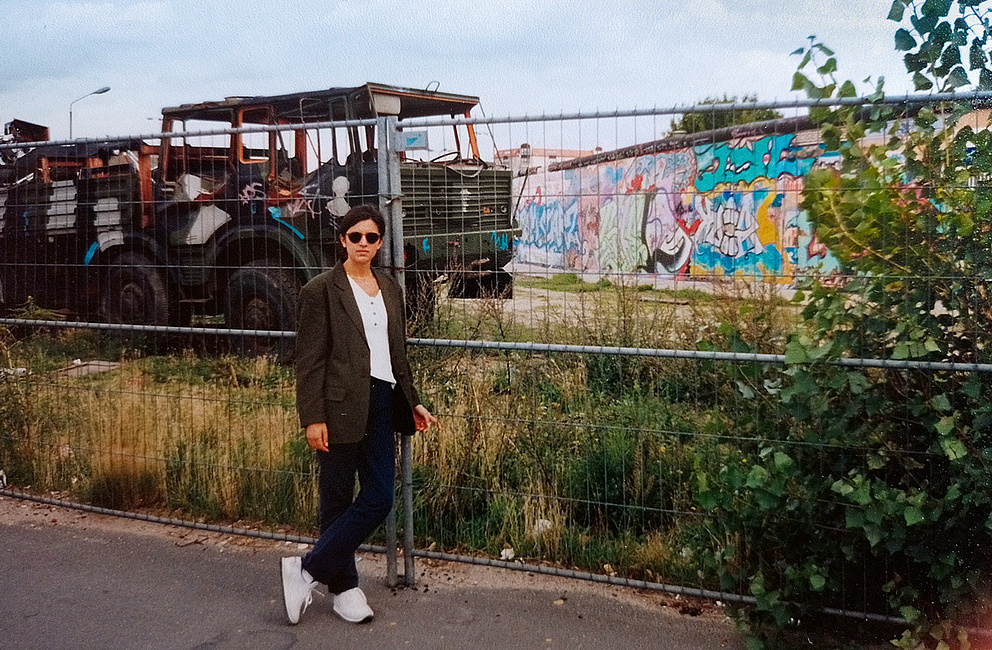
I remember from my first stay in 1993/94 that the Second World War and the Holocaust could be perceived as something that was difficult for Germans to confront. Now I felt that the dark parts of your past had been more maturely incorporated. In one exhibition at the Humboldt Forum in Berlin, beautiful carved ivory art is presented together with German colonialism and elephant slaughter in Africa. At the end of the exhibition, visitors are asked: Should this art be exposed? Which is best to avoid horrors happening again? The same perspective emerges in the impressive Jewish Museum where present-day German Jews have a voice, and Wagner and his music are discussed with different perspectives. I feel that shame and guilt are important, but open questioning of complex issues leads to change. It is moving and it is repairing.
Also in the 1990s, I felt that Germany was a more homogeneous society, maybe somewhat fearful of immigration. As a foreigner one felt signalled out. Now we found a country that is not only open but also welcomes and benefits from diversity. Diversity abounds, and at least in what we could perceive, mostly nobody minds. I guess the strengthening of the European Community has been crucial for this change. But also, your supporting actions for people in need from countries at war, though surely difficult in its implementation, must be highly recognized.
In 1993, the Berlin Wall was mostly intact, as was also the imaginary line that divided the country in two. Contrasting cities and the expression in people’s faces reflected this rift. Now I felt that the Germans have been able to deal with the immense challenge of reunification in quite an amazing way. Divisions have now clearly dimmed. The first woman German Chancellor in fact grew up in the East! Countries dissolve, fractions multiply, societies divide into extremes, and in that landscape, you seem to have been able to confront the differences, somehow to unify.
Another change we observed was in the way Germans perceive children. This has to do with the improved place of women in German society. In the 1990s, kindergartens were scarce; we were told that women interrupted their profession to bring up their kids. Babies were not welcomed in bars or restaurants, while dogs were. Now that simply does not seem to be the case. Change can be seen around the critical issue of climate change and our planet’s sustainability, which are now widely present in many ways, from the increase in “Bio” shops, the weekly farmers’ markets, the Fridays for Future gatherings at the Brandenburger Tor.
We saw the changes walking the streets (that seem to change from one year to the next, too). This time it was during the Covid pandemic, but I should say that it did not cause so much of a problem. Germans are very practical and thus one could keep on living almost normally. As compared to Argentina, I found rules in some respects were less strict, but the crucial difference is that Germans comply with them.
The changes I witnessed in Germany give me hope for the future.
I know that nothing is perfect! But the changes we perceived bring hope for the future, despite the appalling developments in the world like the war in Ukraine. I read Thomas Mann’s “The Magic Mountain” many years ago that covers the period 1907 to 1914. I am not fully sure, but I kind of remember the main character Hans Castorp commenting on the mental difficulty of travelling far from your home, how the soul only followed at a much slower pace than the body. Nowadays we step on a plane and after 20 hours are transported from the freezing 4pm darkness of the Berlin winter to the 30°C of shining summer in the antipodes of Bariloche in Patagonia. From Germany to Argentina. From Europe to Latin America. We are transported in space, and in many ways, we are also transported in time. And at the airports we cross with people and lives that spread through the whole world. It is simply impossible to comprehend all that this implies. And it is wonderful at the same time.
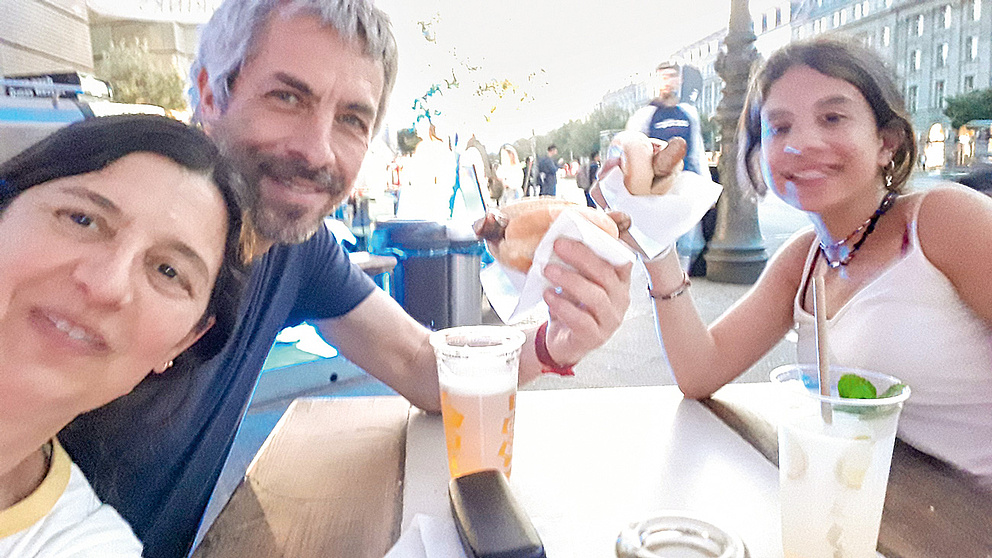
Distance cooperation will surely benefit from virtual tools developed during the pandemic. But scientific and cultural exchanges involve people, and long-term interactions also have to do with friendship and understanding. I am convinced that we are a social species that needs to meet. Not only via a screen but in a lab, around a table, hiking, or in a bar after a conference session. We do not control when and how important ideas emerge. The Alexander von Humboldt Foundation makes an invaluable contribution to making such magic possible.
Kind regards,
Alex

